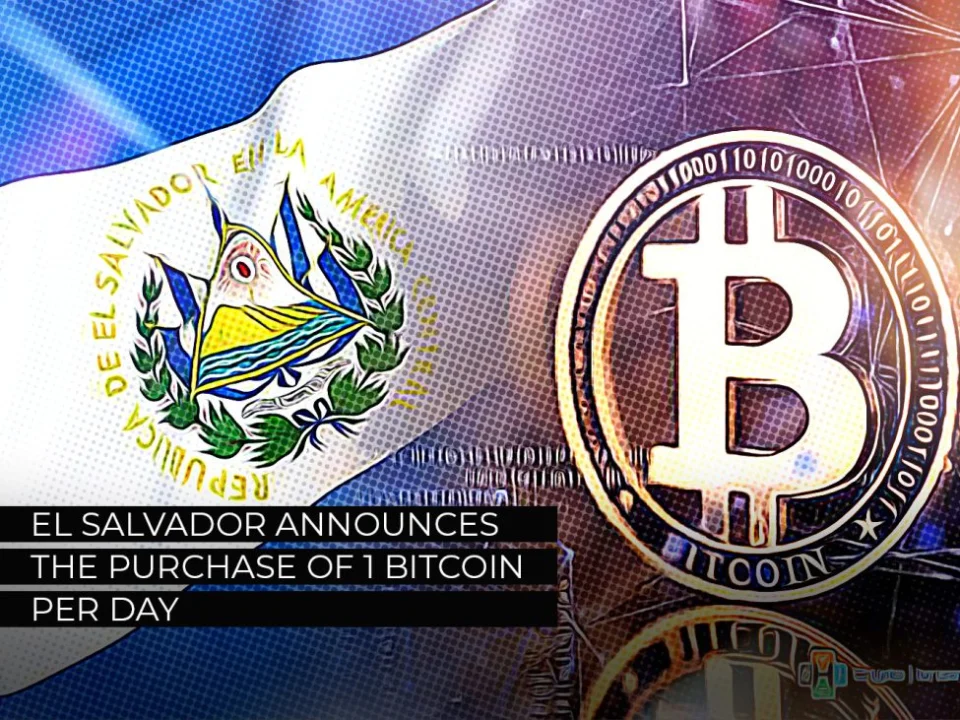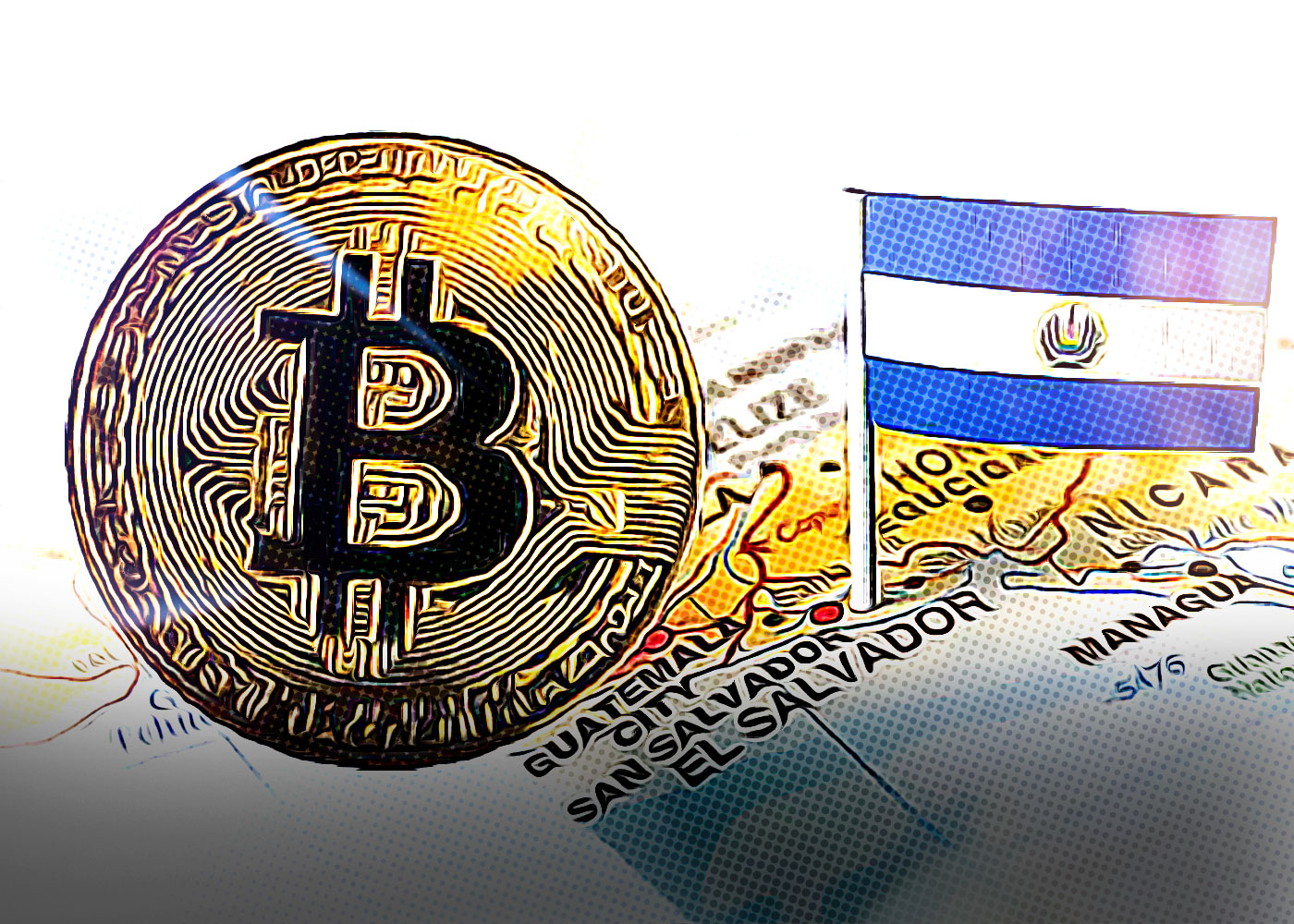El Salvador recently made headlines by announcing its plan to purchase 1 Bitcoin per day, a move that signals the country’s strong commitment to cryptocurrency. This strategy aims to bolster their national reserves and hedge against economic uncertainties. As the first nation to adopt Bitcoin as legal tender, El Salvador continues to pioneer innovative financial policies. The daily acquisitions may have significant impacts on its economy and generate diverse global reactions, shaping the future landscape of digital currencies.
The Rationale Behind El Salvador’s Bitcoin Strategy

El Salvador’s recent announcement to purchase 1 Bitcoin per day has garnered significant attention worldwide. But what motivates this decision? Below are some key reasons driving the country’s bold strategy:
Hedge Against Inflation:
- By purchasing Bitcoin, El Salvador aims to counter the effects of inflation on its national savings.
- Unlike traditional fiat currencies, Bitcoin has a capped supply of 21 million, making it deflationary.
Diversification of National Reserves:
- Diversifying reserves with cryptocurrency can reduce dependency on the US dollar, which has historically been El Salvador’s primary reserve currency.
- This strategy can lead to increased financial stability in an unpredictable global economy.
Technological Innovation:
- Embracing Bitcoin helps position El Salvador as a pioneer in the global shift towards digital currencies.
- Such innovation could attract fintech startups, boosting local economic growth and creating new jobs.
Financial Inclusion:
- Bitcoin can facilitate easier and cheaper remittance transfers, which are a lifeline for many Salvadoran families.
- By promoting Bitcoin, El Salvador aims to provide its unbanked population with access to financial services, fostering greater economic equality.
These factors collectively contribute to El Salvador’s proactive stance on Bitcoin, setting a precedent that other nations may soon follow.
Potential Economic Impacts of Daily Bitcoin Purchases
El Salvador’s decision to purchase 1 Bitcoin per day could significantly impact its economy in several ways. Here are some potential economic outcomes:
1. Asset Diversification:
- By investing in Bitcoin, El Salvador diversifies its asset portfolio.
- This could reduce reliance on traditional financial systems and currencies.
2. Inflation Hedge:
- Bitcoin is often seen as a hedge against inflation.
- Daily purchases might protect the Salvadoran economy from local currency devaluation.
3. Foreign Investment Attraction:
- El Salvador’s bold move could attract foreign investors interested in cryptocurrency.
- Increased investments might boost sectors like technology and finance.
4. Economic Stability:
- Regular Bitcoin purchases may introduce volatility but could stabilize in the long term.
- Short-term: Risk of price fluctuations impacting national reserves.
- Long-term: Potential for significant gains if Bitcoin appreciates.
5. Innovation and Technology Growth:
- Promoting Bitcoin usage could spur growth in blockchain technology.
- This may lead to job creation and technological advancements within the country.
In essence, while El Salvador’s daily Bitcoin purchases are a groundbreaking initiative, they carry both potential benefits and risks. The nation stands at the forefront of financial innovation, with the global community watching closely.
Global Reactions and Future Implications
El Salvador’s decision to purchase 1 Bitcoin per day has sparked mixed reactions on the global stage. Firstly, financial experts have expressed diverse opinions. Some see this move as a bold step towards incorporating cryptocurrency into a national financial strategy, while others view it as a risky gamble that could destabilize El Salvador’s economy.
In addition to financial experts, governments around the world have also weighed in. For instance:
- United States: Authorities have raised concerns about the regulatory and security challenges associated with increased Bitcoin adoption.
- European Union: While some member states are cautiously optimistic, others remain skeptical, emphasizing the need for strict regulations.
Furthermore, this daily Bitcoin acquisition by El Salvador has significant future implications:
- Market Influence: Regular Bitcoin purchases could potentially influence the cryptocurrency market, leading to increased price volatility.
- Blockchain Integration: This strategy might accelerate the use of blockchain technology in the country, setting a precedent for others.
- Economic Diversification: Incorporating Bitcoin could diversify El Salvador’s economic portfolio, reducing dependency on traditional financial systems.
In summary, while El Salvador’s initiative has captured global attention, its success and long-term impact will depend on how effectively it manages the associated risks and capitalizes on the opportunities.
Frequently Asked Questions
What prompted El Salvador to purchase 1 Bitcoin per day?
El Salvador has been a pioneer in adopting Bitcoin as a legal tender, a move aimed at fostering financial inclusion and boosting the economy. By purchasing 1 Bitcoin per day, the government seeks to accumulate a significant reserve of the digital asset, signaling its long-term commitment to integrating Bitcoin into the national economy. This initiative may also be aimed at taking advantage of potential future price appreciations.
How is the daily Bitcoin purchase expected to impact El Salvador’s economy?
The daily purchase of Bitcoin is expected to have several potential impacts on El Salvador’s economy. It could increase the country’s digital asset holdings, providing a hedge against inflation and traditional fiat currency volatility. Additionally, frequent buying could instill greater confidence among residents and investors in the nation’s financial strategy, potentially attracting more foreign investments. However, it also introduces higher exposure to Bitcoin’s price volatility, which could pose financial risks.
How will the government fund the purchase of 1 Bitcoin per day?
Funding for the daily Bitcoin purchase is likely to come from a combination of state budget allocations, special reserves, or public-private partnerships. The specific mechanisms may involve redirecting existing funds, issuing new financial instruments, or leveraging international aid and investments. It is essential for the government to ensure transparency and fiscal responsibility to maintain public trust and avoid potential financial imbalances.
What could be the long-term benefits and risks of this strategy?
The long-term benefits of this strategy may include substantial gains if Bitcoin’s value increases, enhanced financial infrastructure, and a stronger position as a global advocate for cryptocurrency adoption. However, there are also considerable risks, such as price volatility, regulatory challenges, and potential financial losses. The success of this initiative will largely depend on the government’s ability to manage these risks and integrate Bitcoin effectively into the broader economic system.







